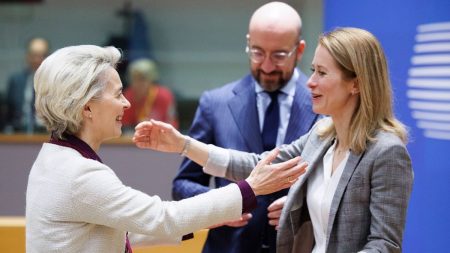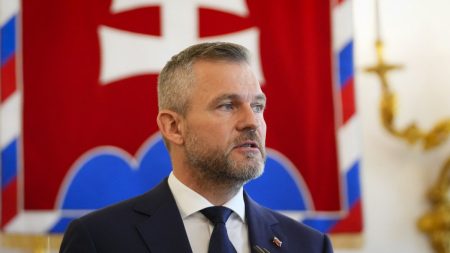Ukraine’s president Volodymyr Zelenskyy has recently signed two significant security agreements, one with US President Joe Biden and another with Japan’s Prime Minister Fumio Kishia, during the G7 summit. The deal with the US is designed to strengthen Ukraine’s defence and deterrence capabilities, while the agreement with Japan will see the allocation of $4.5 billion to Ukraine for security and defence purposes. These agreements have been hailed as historic milestones in Ukraine’s international relations and mark a significant step towards enhancing the country’s security.
In addition to the security deals, the G7 countries have agreed to keep sanctioned Russian assets frozen until Moscow pays reparations for its invasion of Ukraine. This decision has paved the way for a €46 billion loan package for Kyiv, with most of the funds coming from interest earned on profits generated from immobilised Russian assets. The loan is expected to reach Ukraine before the end of the year and will provide much-needed financial support for the nation. The World Bank estimates that Ukraine requires €450 billion for reconstruction and recovery over the next 10 years, making this loan crucial for the country’s long-term stability.
The decision to freeze Russian assets rather than transfer them to Ukraine has been a subject of debate among officials from various countries. The assets, although immobilised, still belong to Russia, and talks are ongoing to determine the technical and legal details of the agreement. If Russian assets are unfrozen in the future, the windfall profits generated would no longer be available to repay the loan, necessitating a burden-sharing arrangement with other countries. The legality of confiscating and transferring these assets remains a complex issue that requires careful consideration.
The security agreements signed by Zelenskyy with the US and Japan include provisions for military and training aid but do not commit either country to putting boots on the ground in Ukraine. Biden emphasized that the security assistance provided would not include weapons to strike targets deep inside Russia, focusing instead on enhancing Ukraine’s defensive capabilities along its borders. Zelenskyy expressed gratitude for the support from these international partners and highlighted the importance of timely and sufficient supply of the announced packages to address Ukraine’s immediate security needs.
The G7 summit, attended by the leaders of Canada, France, Germany, Italy, Japan, the United Kingdom, and the United States, along with representatives from the European Union, serves as a platform for discussions on critical global issues. Zelenskyy’s engagements during the summit have underlined the international community’s commitment to supporting Ukraine in the face of ongoing conflict and aggression. The agreements signed with the US and Japan reflect a shared goal in bolstering Ukraine’s security and defense capabilities, thereby enhancing its resilience in the region.
Overall, the outcomes of the G7 summit, including the security agreements and financial support for Ukraine, signify a significant step forward in strengthening international cooperation and addressing global security challenges. The commitments made by the G7 countries towards supporting Ukraine in its reconstruction efforts and securing its borders against external threats demonstrate a collective resolve to uphold peace and stability in the region. Ukraine’s strategic partnerships with key allies such as the US and Japan underscore the importance of fostering strong diplomatic relations to confront shared security concerns and promote lasting peace in the region.















